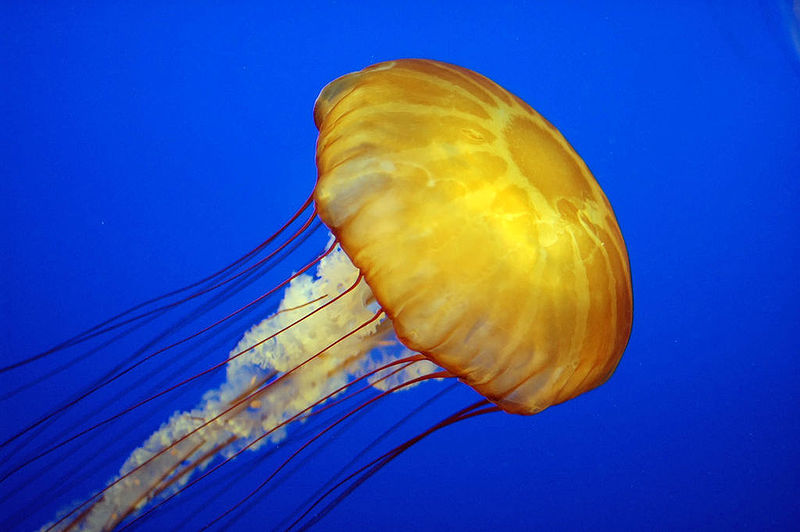Science News
Jellyfish vs the Food Web

Jellyfish could be the cockroaches of the sea. They likely evolved 500 million years ago, inhabit every ocean and thrive when others perish.
In fact, in our troubled waters of today, jellyfish blooms seem to occur with more frequency, wreaking havoc on beaches and even ships at sea.
New research published in the Proceedings of the National Academy of Sciences offers an additional threat: the apparent increase in the size and frequency of jellyfish blooms in coastal and estuarine waters around the world means that jellies' impact on marine food webs is likely to increase into the future.
What impact? Check this out. Jellyfish eat the same precious plankton that fish do, but unlike the fish, the jellies’ waste matter is inedible, except for a few, rare species of bacteria that consume the stuff. Basically the buck stops with jellyfish.
Lead author Rob Condon, of the Virginia Institute of Marine Science, describes it this way,
Jellyfish are voracious predators. They impact food webs by capturing plankton that would otherwise be eaten by fish and converting that food energy into gelatinous biomass. This restricts the transfer of energy up the food chain, because jellyfish are not readily consumed by other predators.
In addition, he says,
Marine bacteria typically play a key role in recycling carbon, nitrogen, phosphorus, and other byproducts of organic decay back into the food web. But in our study, we found that when bacteria consumed dissolved organic matter from jellyfish they shunted it toward respiration rather than growth.
Wired states it clearly:
Given time and numbers, jellyfish might be able to suck an ecosystem dry, converting its bounty to short-lived bacteria.
A host of factors, including climate change, over-harvesting of fish, fertilizer runoff and habitat modifications could help to fuel even more jellyfish blooms, says Condon.
We've seen this already in Chesapeake Bay. If these swarms continue to emerge, we could see a substantial biogeochemical impact on our ecosystems… The more we know, the better we can manage ecosystem resources.
Want to explore the lighter (beautiful) side of jellies? Check out this recent New York Times article or this amazing video from MBARI.
Image by Dan90266/Wikimedia